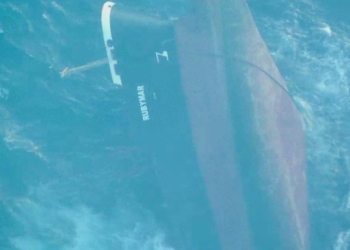An international group of scientists and experts call for a limit on plastic production to address pollution, arguing that it is critical to tackle the issue right at the source, by regulating, capping, and in the long term phasing out the production of new plastics.
According to Norwegian SciTech News, in light of the United Nations global treaty to end plastic pollution, governments are set to enter into debates on what kind of measures will be needed to end the pollution of the air, soils, rivers and oceans with plastic debris and microplastics.
Even if we recycled better and tried to manage the waste as much as we can, we would still release more than 17 million tons of plastic per year into nature
…says Melanie Bergmann of the German Alfred Wegener Institute, the initiator of the letter.
If production just keeps growing and growing, we will be faced with a truly Sisyphean task
…she adds.
A research published in Science in 2020 reveals that plastic emissions can only be cut by 79% over the next 20 years. This reduction can be achieved if all solutions available today are implemented, including replacing some plastics with other materials, and improved recycling and waste management.
The exponentially growing production is really the root cause of the problem, and the amounts of plastics we have produced thus far have already exceeded planetary boundaries
…says Bethanie Carney Almroth of the University of Gothenburg, Sweden.
If we don’t tackle that, all other measures will fail to achieve the goal of substantially reducing the release of plastic into the environment
…Bethanie Carney Almroth stresses.
According to many experts, phasing out the production of new plastics from fresh feedstocks should be part of a systemic solution to end plastic pollution.
A comprehensive approach must also cover the supply side, meaning the actual amount of plastics produced and put on the market
This approach is supported by the best science available today and in line with what political and legal experts proposed in Science last year. In addition, a comprehensive approach must also cover the supply side, meaning the actual amount of plastics produced and put on the market.
According to scientists, gradually cutting the production of new plastics will have several societal, environmental and economic benefits.
…the massive production also feeds the plastic waste transfer from the Global North to the South. A production cap will facilitate getting rid of non-essential applications and reduce plastic waste exports
…Sedat Gündoğdu of Cukurova University, Turkey, comments.
We gain a lot of benefits from plastics but reducing production will increase the value of plastics, boost other measures to curb plastic pollution, help tackle climate change and promote our transition to a circular and sustainable economy
…adds Martin Wagner, an ecotoxicologist at the Norwegian University of Science and Technology.
Recently, DFDS announced its collaboration with ReSea Project to support the fight for an ocean without plastic pollution. Namely, DFDS is committed to actively remove plastic waste from oceans and rivers via its partnership with ReSea Project.
At the beginning of April 2022, United Nations entities and the private sector announced their collaboration in order to address and tackle sea-based marine plastic litter, through the GloLitter Partnerships Project.































































